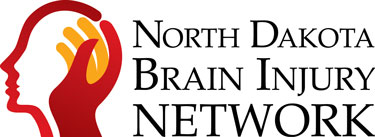Life After Brain Injury
Just as no two brains are alike, no two brain injuries are the same, either. As a result, each person living with a brain injury is affected in a different way.
North Dakota Brain Injury Network (NDBIN) has adopted a screening protocol and symptom inventory with the help of Mindsource. Survivors can contact NDBIN to get their personal symptom inventory set up with our staff.
Following completion of a symptom inventory, survivors are provided with tip sheets that match the brain injury symptoms they are experiencing.
Brain Injury Tip Sheets
There are two types of tip sheets: for survivors, and for professionals.
The tip sheets for survivors describe symptoms and provide accommodations for areas based on the symptom inventory, as well as some areas that all survivors seem to struggle with. Video recordings will be uploaded to match the tip sheets as they become available.
The tip sheets for professionals are intended for the survivor to share with professionals they work with, and family and friends.
-
Accommodating Brain Injury
Survivors | Recording -
Anger
Survivors | For Professionals | Recording -
Attention
Survivors | For Professionals | Recording -
Brain Health
Survivors -
Delayed Processing
Survivors | For Professionals | Recording -
Emotional Dysregulation
Survivors | Professionals | Recording -
Executive Functioning Skills
Survivors -
Fatigue
Survivors | For Professionals | Recording -
Impulsivity/Inhibition
Survivors | For Professionals -
Memory
Survivors | For Professionals | Recording -
Mental Inflexibility
Survivors | For Professionals | Recording -
Mindfulness
Survivors | Recording -
Organization
Survivors | For Professionals | Recording -
Person-Centered Practices
Survivors -
Physical and Sensorimotor
Survivors | For Professionals | Recording -
Self-Awareness
Survivors | For Professionals | Recording -
Sleep
Survivors -
Speech/Language
Survivors | For Professionals
Survivor Spotlights
Local survivors share their story in the hope others may learn something new, be inspired, and continue to advocate for the needs of survivors.
If you would like to share your story, email Carly Endres carly.endres@und.edu for more information.
